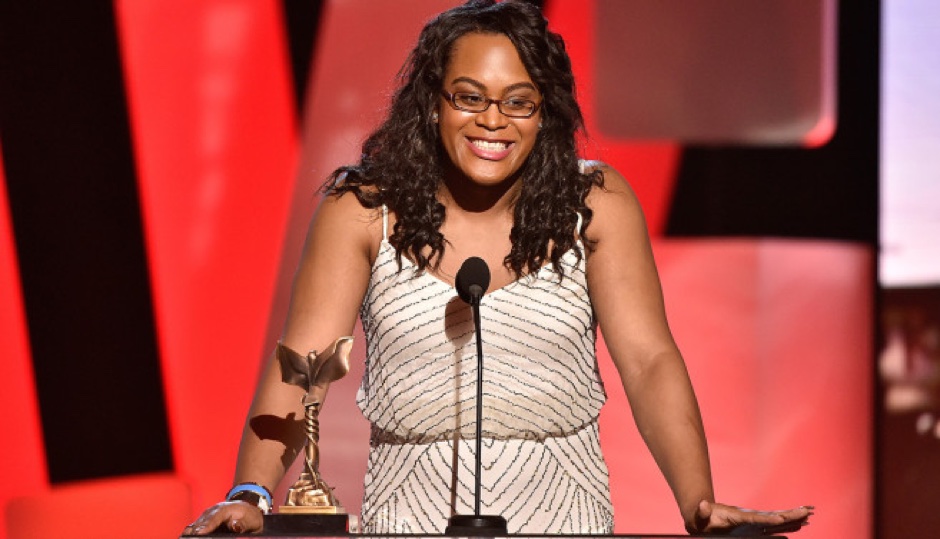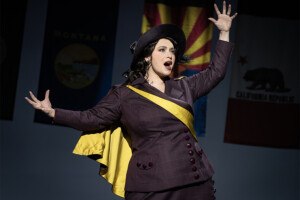OPINION: LGBTQ Entertainers Deserve Better From Hollywood

Actress Mya Taylor speaks during the 2016 Film Independent Spirit Awards on February 27, 2016, in Santa Monica, California. (Photo by Kevork Djansezian/Getty Images)
As I watched the Academy Awards on Sunday, my mind was split in two places.
One, as a black American, I was baffled by the controversy surrounding #OscarsSoWhite and how comedian Chris Rock trivialized the sentiment while hosting. But being gay as well, I was also reminded of how much hasn’t changed in seeing both of my identities advance in Hollywood.
As much as we can argue that the Oscars were so white this year, it was also so straight this year too. But depending on how you view it, you might argue it wasn’t.
Yes, the lesbian drama Carol and transgender film The Danish Girl were celebrated – but the actors nominated for those films were all straight. In fact, outside of the acting categories, Sam Smith’s Best Original Song win was the only openly LGBT victory that night.
This is nothing new. Hollywood has had a long and disappointing history of nominating 50 straight actors for Oscars in playing LGBTQ roles. This year alone, there were three such nominations.
There’s not a dearth of LGBTQ actors in Hollywood, so I don’t understand how hard it would be to allow them to add more sophistication to these very complex roles. It’s rather patronizing to celebrate the work of straight actors constantly being honored for playing these parts when such members of the community have a hard time being cast for them at all.
After this year, I’ve vowed to no longer endorse the detrimental cycle of allowing my identity to be a fetish for the entertainment industry. There is nothing more elevating or exotic about a straight actor playing a LGBTQ character that can’t be as rewarding if done the other way around. Hollywood has gone too far in showing only visual progress and not addressing true equality. That major LGBTQ-themed films star only straight actors, producers, and directors is an embarrassment.
This year marked the first time in history a transgender actress won a major film industry award. For her supporting role in the indie film Tangerine, Mya Taylor won an Independent Spirit Award. Her character was transgender (just as herself), and the film itself wasn’t focused primarily on her identity, but her other life experiences.
Often when straight characters play LGBTQ characters, it’s through an exploitative lens. For example, in Natalie Portman’s Oscar-winning role in the film Black Swan, she often explores her infatuation with another female adversary through raunchy drunken lesbian sex-scenes. Other than that, the nuance of her queerness isn’t even explored.
It’s high time LGBTQ actors, producers, and writers rally behind a movement calling for a change in the way they are being portrayed and utilized in Hollywood. We are more than just characters for straight actors to experiment with. Our narratives shouldn’t be used as taboo-bait for onlookers to gawk at, but done with a level of taste that should come from direct experience.
We wouldn’t want white actors playing black characters, as some have attempted to more recently. So we shouldn’t be too keen on continuing to take LGBTQ roles away from LGBTQ actors in an industry that hardly allow them to play straight parts.


